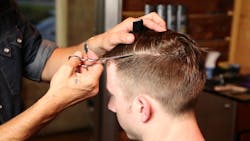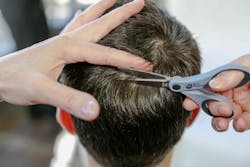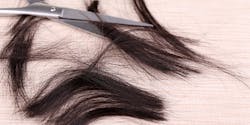Request for hair testing in drug screening draws mixed reactions
A number of trucking industry groups and motor carriers expressed support for using hair samples instead of urine when testing for drugs during pre-employment screenings of truck drivers.
But in comments filed with Federal Motor Carrier Safety Administration (FMCSA) made public this week, other groups and individuals questioned the reliability and fairness of testing hair.
Currently, urine testing is the only approved method for pre-employment screening, but J.B. Hunt Transport, Schneider, Werner Enterprises, Knight Transportation, Dupre Logistics and Maverick Transportation requested an exemption to test hair instead.
Those fleets have conducted both tests on applicants for several years. They say data show using hair is a more comprehensive method because it detects use for longer period of time. Opponents say different color or types of hair are more likely to return a false positive than others.
Federal guidelines exist on urine testing, but do not yet for hair testing. The 2015 FAST Act required the Department of Health and Human Services (HHS) to set those guidelines by December 2016, but it has yet to do so.
That failure is the reason Reps. Peter DeFazio (D-Oregon) and Rep. Eleanor Holmes Norton (D), non-voting delegate for the District of Columbia, filed a joint letter in opposition to exemption request.
“To permit hair testing to be used before scientifically-proven standards have been established by the U.S. Department of Health and Human Services would be premature and would contradict the clear intent of Congress,” those two Democratic members of the House Transportation and Infrastructure Committee wrote.Abigail Potter of American Trucking Associations (ATA) noted the lack of guidance from HHS. “While ATA strongly supports this exemption application, we understand that FMCSA may be constrained in granting these applications until the U.S. Department of Health and Human Services establishes technical guidelines for hair testing,” she wrote.
The Owner-Operator Independent Drivers Association (OOIDA) took a different position.
“Granting an exemption for an unproven methodology using non-standardized procedures and protocols that could possibly affect the livelihood of thousands of drivers is inappropriate at this time,” OOIDA said.
It added there is no evidence that hair testing has resulted in lower accident rates.
Even without formal guidelines, several commenters outlined reasons FMCSA should grant the exemption.
Crete Carrier Corp. said approving hair testing would “provide federal pre-emption to a large and diverse patchwork of state and local drug testing laws governing the testing of applicants and employees.”
The ability to purchase inexpensive products to help drug users cheat urine tests was among the reasons to support the request, said Lane Kidd, managing director of the Trucking Alliance.Road Safe America, which often opposes trucking on policy measures, called hair testing a reliable method, and said it should be an option for companies willing to pay the higher costs for those tests.
In its letter supporting the move, Psychemedics, a company that conducts drug testing, cited a 38% decrease in accidents in Brazil since that nation mandated hair testing for all commercial drivers.
However, David Kidwell, a Virginia-based research scientist, said his experience shows hair testing is unfair because it measures exposure to drugs rather than use.
“Urine is not infallible but has a minimal likelihood of a false accusation of at least 30-times less than hair testing,” he said.
The Transportation Trades Department (TTD) of the AFL-CIO cautioned this exemption would create a “severe inconsistency among the millions of transportation workers who comply with federal drug testing regulations.”
One anonymous commenter, who said he holds a commercial license, raised religious objections: “Urine causes no harm, but religiously I cannot nor will I allow my hair to be cut. Even if it's just one.”
A joint filing from the National Center for Transgender Equality and National Employment Lawyers Association said they believe hair testing will produce more false positive results for “African Americans and others with similar hair texture.”
A higher rate of false positive for those who often color and treat their hair was also raised by OOIDA.
About the Author
Neil Abt
Neil Abt is a former FleetOwner editor who wrote for the publication from 2017 to 2020. He was editorial director from 2018 to 2020.


